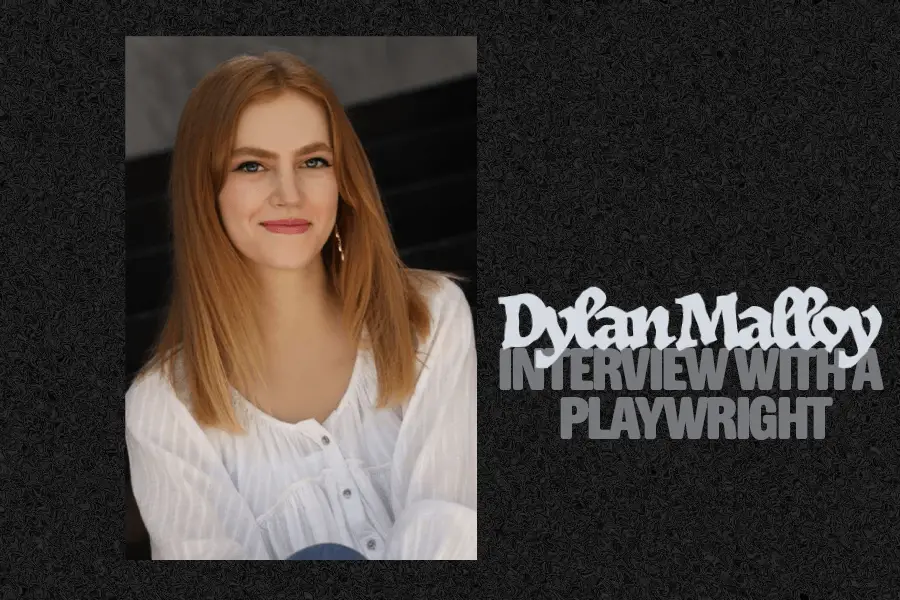I attended every play at my university theater, but one specific performance in 2022 had the audience abuzz with intrigue and anticipation. It had been written by my friend Dylan Malloy, a playwriting major who lived down the hall from me during our freshman year. Student-made art is a special phenomenon on college campuses. There is a unique quality to art created by one’s peers, a mesmerizing sense that the art you are seeing is created by a mind not so dissimilar from your own. The show paused the chatter of the campus outside and the dread of encroaching assignments, and settled the crises of the chaotic world into obscurity. Dylan Malloy’s “The Groundwater” made time stand still.
The world premiere staged reading of Malloy’s “The Groundwater” was just the beginning for this play. After being one of a few young winners of the Blank Theatre’s 31st annual national Young Playwrights Festival, “The Groundwater” was fully produced in Los Angeles in the summer of 2023 by an array of experienced and acclaimed actors, directors and producers. The Blank Theatre’s iteration starred Madison McLaughlin (“Arrow,” “Chicago PD”) as Kate, Jorge-Luis Pallo (“The Secret Life of the American Teenager”) as J and David Bloom (“Gortimer Gibbon’s Life on Normal Street”) as Abel. This production was directed by Laura Stribling.
When I interviewed Malloy at our university’s coffee shop, she gave me the full story of her wide-reaching vision. “So ‘The Groundwater’ is the final installment of a 5-play play cycle that I’ve been working on for a number of years,” she said. “It examines loneliness… and the climate crisis in rural Colorado between 2017 and 2087…’The Groundwater’ is the 2087 play.”
Exploring the effects of the climate crisis is important to Malloy. “Growing up in Colorado,” she explained, “drought is something that is kind of a present thing. It’s something that impacts our way of life… growing up in an area of the country that obviously experiences climate change in a unique way… that was something that felt kind of ever-present. And I noticed myself in my work trying to ground myself in this sense of place, this specific region, so writing about climate felt like a natural thing.”
The Blank Theatre chooses 12 playwrights between the ages of 9 and 19 for this festival every year. In the summer of 2022, Malloy won the festival for the first time, and her play “Venus, and What Else is Nocturnal,” the first installment of her 5-play cycle, was produced as well. The subsequent plays in the cycle are “Felicity,” “Solastalgia,” “Robin Robin,” and finally “The Groundwater.”
“The Groundwater” follows three strangers hiding in a cabin as an apocalyptic water shortage decimates the American West. J, a middle-aged conspiracy theorist, Kate, a young pregnant woman, and Abel, a teenage boy, find family in each other amidst tragedy and turmoil. Between Abel’s dehydration-induced hallucinations and the mystical presence haunting Kate, there is an unsettling atmosphere that casts desperation into the air during “The Groundwater.” When I watched it during the Emory University production, I could feel this desperation and intensity as it traveled throughout the audience from the stage. Malloy wrote in a synopsis of the play: “‘The Groundwater’ explores faith, fear, and the hope of human connection at the end of the world.”
Malloy told me that it was this special atmosphere that came first while imagining the play. “I wrote the five plays in the cycle out of order, 1, 5, 2, 3, 4. The more I wrote I began to see that this was the sort of climax. I’m thinking, what does this (the play) have to say about the world…The first image I saw of this play, I knew it was three people in a cabin, and the world doesn’t always line up with reality.”
When I saw the second play in the cycle, “Felicity,” during a new play festival that I was acting in, the atmosphere again seemed to come first. This play follows two childhood friends working through their thoughts and feelings while witnessing a historical rocket launch. The history and lore were present, but like with “The Groundwater,” it was the presence of human connection that radiated most powerfully from the stage. And, of course, Malloy’s words — especially her monologues — dig deep into the psychology and philosophy of human existence. I also saw Malloy’s fourth play in the cycle, “Robin, Robin,” as it was produced at our university as well. “Robin, Robin” shares a character with “The Groundwater”: the tightly wound but sympathetic conspiracy theorist, J.
Each production that dawned on an Emory stage included some of my friends from the university’s diverse set of actors, and I was thrilled to be one of the first to see each of these plays. Knowing that “The Groundwater” traveled all the way to Los Angeles for production with the highly acclaimed Blank Theatre is not much of a shock.
Blank Theatre was designated as “one of the best theatre companies in America” by The Drama League. During our interview, Malloy spoke about her experience with the theatre: “I can’t praise the Blank highly enough,” she said. On her treatment as a young person in a professional setting, she said, “The Blank is really big on when they produce plays at this festival the playwrights aren’t students, they are playwrights and professionals. Each playwright is matched with a mentor who guides them throughout the process. Malloy’s mentor for “The Groundwater” was Aliza Goldstein, a playwright who often works with The Blank Theatre. “That’s one of the best parts of the process for me,” Malloy said, referring to the mentoring.
In 2023, Malloy won the Emory University’s Artistine Mann Award for best playwriting by an undergraduate for “The Groundwater.” The completion of her five-play cycle does not mark an end but rather a new dawn for the young playwright. She continues to celebrate human connection through her writing, as she has done with her previous works. In “The Groundwater,” Malloy wrote the following: “Paradise is the promise of rain on the horizon. Paradise is other people.” Paradise, it seems, is also the promise of a new generation of artists, creating art that will live on beyond the scope of our years.
















